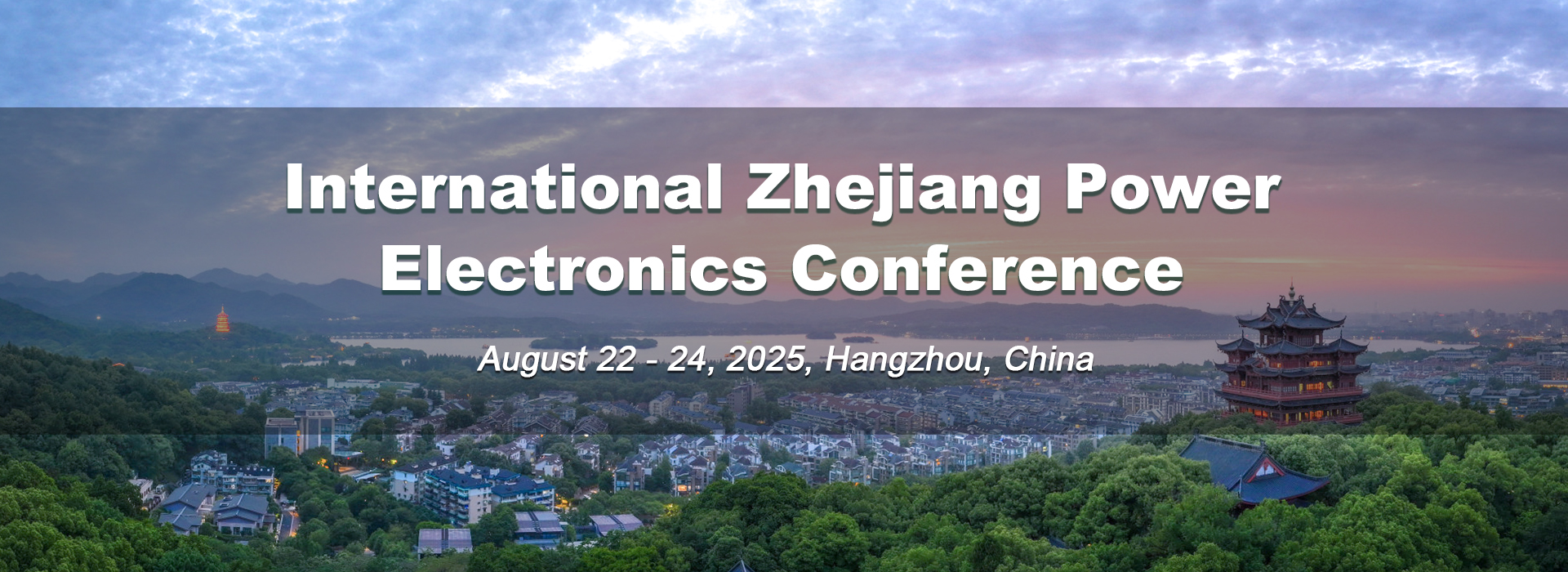
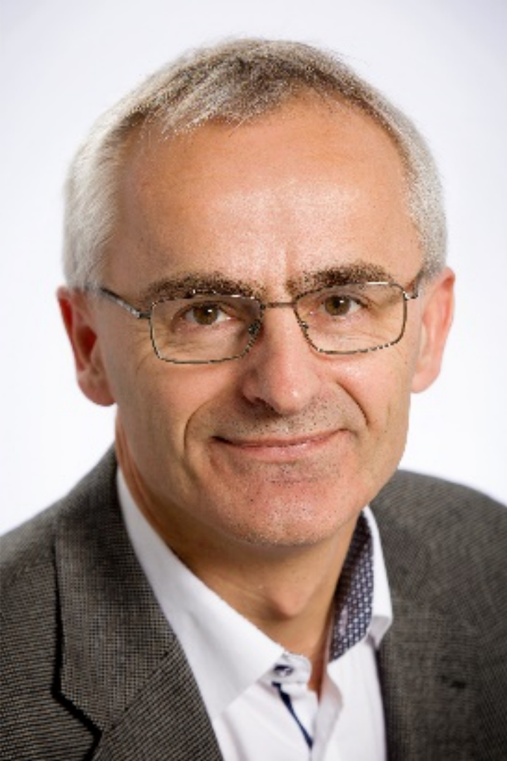
Prof. Frede Blaabjerg
Aalborg University, Denmark
IEEE Fellow, Member of the Danish Academy of Technical Sciences.
Prof. Frede Blaabjerg (S’86–M’88–SM’97–F’03) was with ABB-Scandia, Randers, Denmark, from 1987 to 1988. From 1988 to 1992, he got the PhD degree in Electrical Engineering at Aalborg University in 1995. He became an Assistant Professor in 1992, an Associate Professor in 1996, and a Full Professor of power electronics and drives in 1998 at AAU Energy. From 2017 he became a Villum Investigator. He is honoris causa at University Politehnica Timisoara (UPT), Romania in 2017 and Tallinn Technical University (TTU), Estonia in 2018.
His current research interests include power electronics and its applications such as in wind turbines, PV systems, reliability, Power-2-X, power quality and adjustable speed drives. He has published more than 800 journal papers in the fields of power electronics and its applications. He is the co-author of ten monographs and editor of twenty books in power electronics and its applications, e.g., the series (4 volumes) Control of Power Electronic Converters and Systems published by Academic Press/Elsevier.
He has received 46 IEEE Prize Paper Awards, the IEEE PELS Distinguished Service Award in 2009, the EPE-PEMC Council Award in 2010, the IEEE William E. Newell Power Electronics Award 2014, the Villum Kann Rasmussen Research Award 2014, the Global Energy Prize in 2019 and the 2020 IEEE Edison Medal. He was the Editor-in-Chief of the IEEE Transactions on Power Electronics from 2006 to 2012. He has been a Distinguished Lecturer for the IEEE Power Electronics Society from 2005 to 2007 and for the IEEE Industry Applications Society from 2010 to 2011 as well as 2017 to 2018. In 2019-2020 he served as a President of IEEE Power Electronics Society. He has been Vice-President of the Danish Academy of Technical Sciences.
He is nominated in 2014-2021 by Thomson Reuters to be between the most 250 cited researchers in Engineering in the world.
Power Electronics Technology - Trends and Applications
The world is becoming more and more electrified combined with that the consumption is steadily increasing – at the same time there is a large transition of power generation from fossil fuel to renewable energy based which all together challenges the modern power system but also gives many opportunities. We see also now big steps being taken to electrify the transportation – both better environment as well as higher efficiency are driving factors. One of the most important technologies to move this forward is the power electronics technology which has been emerging for decades and still challenges are seen in the technology and the applications it is used. This presentation will be a little forward looking (Quo Vadis) in some exciting research areas in order further to improve the technology and the systems it is used in. Following main topics will be discussed
At last some discussions about other hot topics will be given.
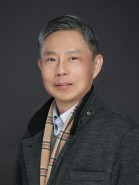
Prof. Xiangning He
Zhejiang University, China
IEEE Fellow
Prof. Xiangning He received the B.Sc. and M.Sc. degrees from Nanjing University of Aeronautical and Astronautical, Nanjing, China, in 1982 and 1985 respectively, and the Ph.D. degree from Zhejiang University, Hangzhou, China, in 1989.
From 1985 to 1986, he was an Assistant Engineer at the 608 Institute of Aeronautical Industrial General Company, Zhuzhou, China. From 1989 to 1991, he was a Lecturer at Zhejiang University. In 1991, he obtained the Royal Fellowship from the Royal Society of U.K., and conducted research in the Department of Computing and Electrical Engineering, Heriot-Watt University, Edinburgh, U.K., as a Post-Doctoral Research Fellow for two years. In 1994, he joined Zhejiang University as an Associate Professor. Since 1996, he has been a Full Professor in the College of Electrical Engineering, Zhejiang University. He was the Director of the Power Electronics Research Institute, the Head of the Department of Applied Electronics, Vice Dean of the College of Electrical Engineering and he is currently the Director of the National Specialty Laboratory for Power Electronics, Zhejiang University. Dr. He worked as a visiting/guest professor for cooperation research in U.K. in 1997 and 1998, in U.S.A. in 1999 and in Australia in 2002. He is a Fellow of the IEEE and a Fellow of the IET (formerly IEE). His research interest is Power Electronics and its Industrial Applications.
Talkative Power Converters (TPC)-Principles and Applications
The large-scale use of power electronic equipment has created new opportunities and challenges for the dual modulation of power and information through power electronic converters. This development is paving the way for a deeper integration of power conversion and communication systems, shaping a new direction in smart power electronic conversion technology. Talkative Power Converters (TPC), named in 2020, represent a significant advancement in this field. It transforms the traditional role of power electronics equipment, which was primarily focused on regulating electrical power, to one that actively participates in information encoding. This report will explores the fundamental concepts and principles of TPC technology, and the typical applications be introduced.
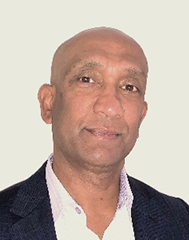
Prof. Udaya K. Madawala
University of Auckland, New Zealand
IEEE Fellow
Prof. Udaya K. Madawala graduated with a B.Sc. (Electrical Engineering) (Hons) degree from The University of Moratuwa, Sri Lanka, and received his PhD (Power Electronics) from The University of Auckland, New Zealand as a Commonwealth Doctoral Scholar. At the completion of his PhD, he was employed as a Research and Development Engineer by Fisher & Paykel Ltd, New Zealand, to develop new technologies for PM motor drives. At present as a Full Professor in the Department of Electrical, Computer & Software Engineering at University of Auckland, New Zealand, he leads a group of researchers focusing on a number of power electronics projects that are related to energy and wireless EV charging systems for V2X applications.
Udaya is a Fellow of the IEEE, and has both industry and research experience in the fields of power electronics and energy. He has served both the IEEE Power Electronics and Industrial Electronics Societies in numerous roles, relating to editorial, advisory, conferences, administrative & technical committees and chapter activities. He was the General Chair of the 2nd IEEE Southern Power Electronics Conference (SPEC)- 2016, held in New Zealand, and is also the Chair of SPEC Steering Committee and a Distinguished Lecturer of the IEEE Industrial Electronic Society. He is the recipient of the IEEE PELS Milan M. Jovanović Award for Power Electronics Emerging Technology and the University of Auckland Research Excellence Medal in 2024. Udaya, who has over 300 journal and conference publications, holds a family of global patents related to wireless power transfer (WPT) technology and power converters, and is a consultant to industry.
EV Charging: Challenges & Technologies
Perceived as one of the most promising means of future transport, Electric vehicles (EVs) are currently gaining wider acceptance. However, there are many challenges in relation to charging techniques and their impact on the grid. Hence, both grid integration and charging techniques of EVs have become one of the main focuses of current research. EVs can be charged either by wired or wireless means, and the latter, based primarily on inductively coupled wireless power transfer (WPT) technology, is becoming increasingly popular being convenient, safe, and ideal for both stationary and dynamic (while moving) EV charging. This seminar discusses the challenges related to EV charging and presents the technologies that have been developed for wireless EV charging applications.
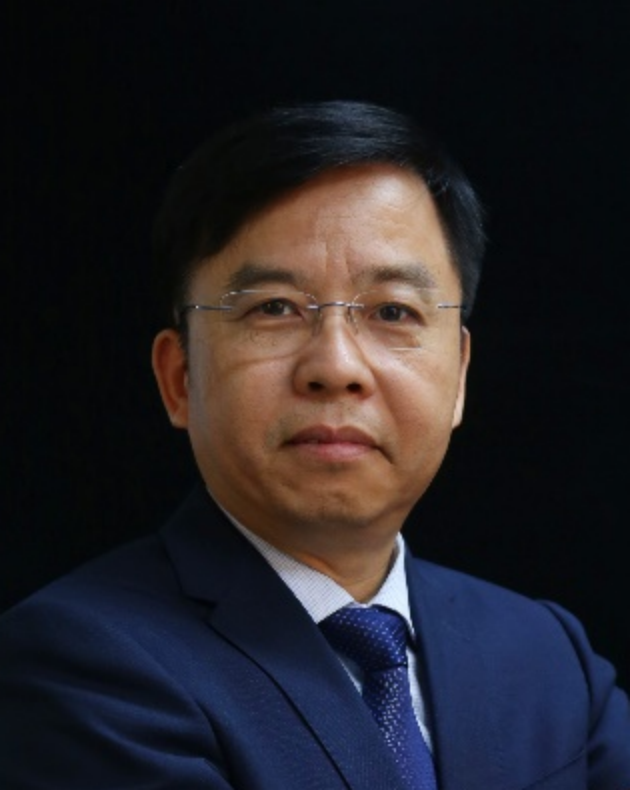
Dr. Alpha J. Zhang
Delta Electronics (Shanghai) Design Center
IEEE Fellow
Dr. Alpha J. Zhang was an associate professor in the Electrical Engineering Department at Zhejiang University from 1991 to 1998. He served as a visiting professor at the Center for Power Electronics Systems (CPES), Virginia Tech, USA, in 1995 and 1998.
In 1999, he joined Delta Electronics (Shanghai) Co., Ltd. He is the founder and Director of the Delta Electronics (Shanghai) Design Center (SDC), established in 2002, and the Delta Electronics (Hangzhou) Design Center (HDC), founded in 2007. Under his leadership, multi-disciplinary R&D teams of over 1,000 engineers have supported 15 Delta business units in serving customers worldwide. His expertise spans AC/DC adapters and chargers, High-efficiency DC/DC and AC/DC power converters for servers and networking systems, HVDC power solutions for data center systems, On-board chargers and traction inverters for electric vehicles, PV inverters and energy storage solutions for renewable energy systems, among others. He holds 108 U.S. patents and 133 Chinese patents.
Currently, he serves as Vice President of the China Power Supply Society (CPSS) and is a Fellow of both CPSS and IEEE (since 2025).
Challenges and Latest Achievements of Energy Efficiency Solutions for AI Data Center Systems
With the continuous growth of digitalization and data service demands, especially the rapid expansion of data centers for artificial intelligence large-scale model training, the power requirements has been increasing significantly and electricity consumption has become a major operational cost concern. Therefore, improving overall power conversion efficiency and achieving system energy efficiency has become key drivers in data center design. This report will discuss the challenges and latest achievements in power architectures, ranging from the powering of GPU on board-level and supplies at the rack-level to the powering of entire data center system.
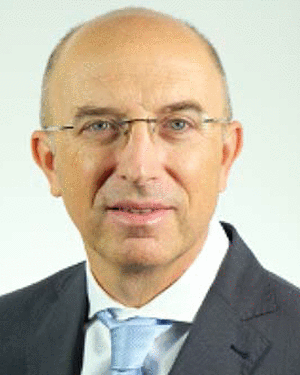
Prof. Paolo Mattavelli
University of Padova, Italy
IEEE Fellow
Prof. Paolo Mattavelli received the M.S. degree (with honors) and Ph.D. degree in electrical engineering from the University of Padova, Padova, Italy, in 1992 and in 1995, respectively. From 1995 to 2001, he was a Researcher with the University of Padova. From 2001 to 2005, he was an Associate Professor with the University of Udine, where he led the Power Electronics Laboratory. In 2005, he joined the University of Padova in Vicenza with the same duties. From 2010 to 2012, he was with the Center for Power Electronics Systems (CPES) at Virginia Tech. He is currently a Professor with the University of Padova. His major field of interest includes analysis, modeling and analog and digital control of power converters, grid-connected converters for renewable energy systems and micro-grids, high-temperature, and high-power density power electronics. In these research fields, he has been leading several industrial and government projects. His current google scholar h-index is 81. He served as an Associate Editor for IEEE Transactions on Power Electronics, from 2003 to 2012. From 2005 to 2010, he was the IPCC (Industrial Power Converter Committee) Technical Review Chair for the IEEE Transactions on Industry Applications. For terms 2003–2006, 2006–2009, and 2013–2015 he has been a member-at-large of the IEEE Power Electronics Society's Administrative Committee. He also received in 2005, 2006, 2011, and 2012 the Prize Paper Award in the IEEE Transactions on Power Electronics and in 2007, the 2nd Prize Paper Award at the IEEE Industry Application Annual Meeting. He is a Co-Editor in Chief for IEEE Transactions on Power Electronics.
On the Small-Signal Stability and Impedance Passivation in Power Electronics Dominated Future Electrical Grids.
This presentation will explore recent control-oriented research challenges related to small-signal stability and dynamic interactions in future power systems dominated by power electronic converters. Key topics will include impedance-based small-signal stability analysis, self-tuning mechanisms, stability monitoring techniques, impedance specification methods, and unterminated modeling. The impact of advanced oversampled current and voltage control strategies on system stability will also be examined. Various approaches for achieving impedance passivation—particularly through unterminated converter modeling—will be discussed. Special emphasis will be placed on control-oriented solutions for grid-forming technologies. The presentation will illustrate these concepts with examples drawn from diverse scenarios, including lab-scale microgrids, multi-port converters, soft open-point applications, and offshore wind power plants.
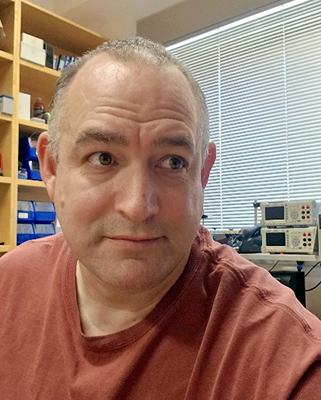
Assoc. Prof. Juan Rivas-Davila
Stanford University, USA
Juan Rivas is an Associate Professor in the Electrical Engineering department at Stanford University. Before joining Stanford, he served as an Assistant Professor at the University of Michigan for two years. Prior to his transition to academia, Professor Rivas worked for five years as a senior engineer in the high-frequency power electronics group at the General Electric Global Research Center in Niskayuna, New York.
He completed his undergraduate studies at the Monterrey Institute of Technology in Mexico City and earned both his Master's degree in 2003 and his Doctor of Science degree in 2006 from MIT.
Professor Rivas's research aims to enhance the performance of power supplies, with a particular focus on designing power supplies for medical systems. His research interests include power electronics, RF power amplifiers, resonant converters, soft-switching topologies, and the design of air-core passive components for VHF power conversion.
Research at the SUPER-Lab: Using Piezoelectrics resonators to replace inductors, and MHz converter for Medical Imaging Systems
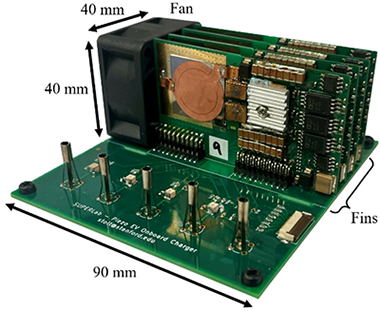 In this talk, I will discuss several ongoing projects at the Stanford University Power Electronics Research Laboratory.
One area of investigation focuses on the use of piezoelectric resonators in power electronics.Many applications, particularly in transportation, require smaller power converters. However, traditional converter designs often fail to meet this demand due to the fundamental scaling limitations of inductors. In this presentation, we will explore how power converters designed around piezoelectric resonators, rather than inductors, can circumvent this bottleneck to achieve high power density. I will cover various control methods and acoustic designs aimed at overcoming two major challenges associated with practical piezoelectric resonator-based DC-DC converters: spurious modes and closed-loop control at high frequencies. We have developed prototype converters that validate these concepts, including an ultra-high power density 3.2 kW, 6.2 MHz DC-DC converter designed for electric vehicle onboard charging.
In this talk, I will discuss several ongoing projects at the Stanford University Power Electronics Research Laboratory.
One area of investigation focuses on the use of piezoelectric resonators in power electronics.Many applications, particularly in transportation, require smaller power converters. However, traditional converter designs often fail to meet this demand due to the fundamental scaling limitations of inductors. In this presentation, we will explore how power converters designed around piezoelectric resonators, rather than inductors, can circumvent this bottleneck to achieve high power density. I will cover various control methods and acoustic designs aimed at overcoming two major challenges associated with practical piezoelectric resonator-based DC-DC converters: spurious modes and closed-loop control at high frequencies. We have developed prototype converters that validate these concepts, including an ultra-high power density 3.2 kW, 6.2 MHz DC-DC converter designed for electric vehicle onboard charging.
Additionally, we will examine recent work on MHz converters and their applications in medical imaging.
